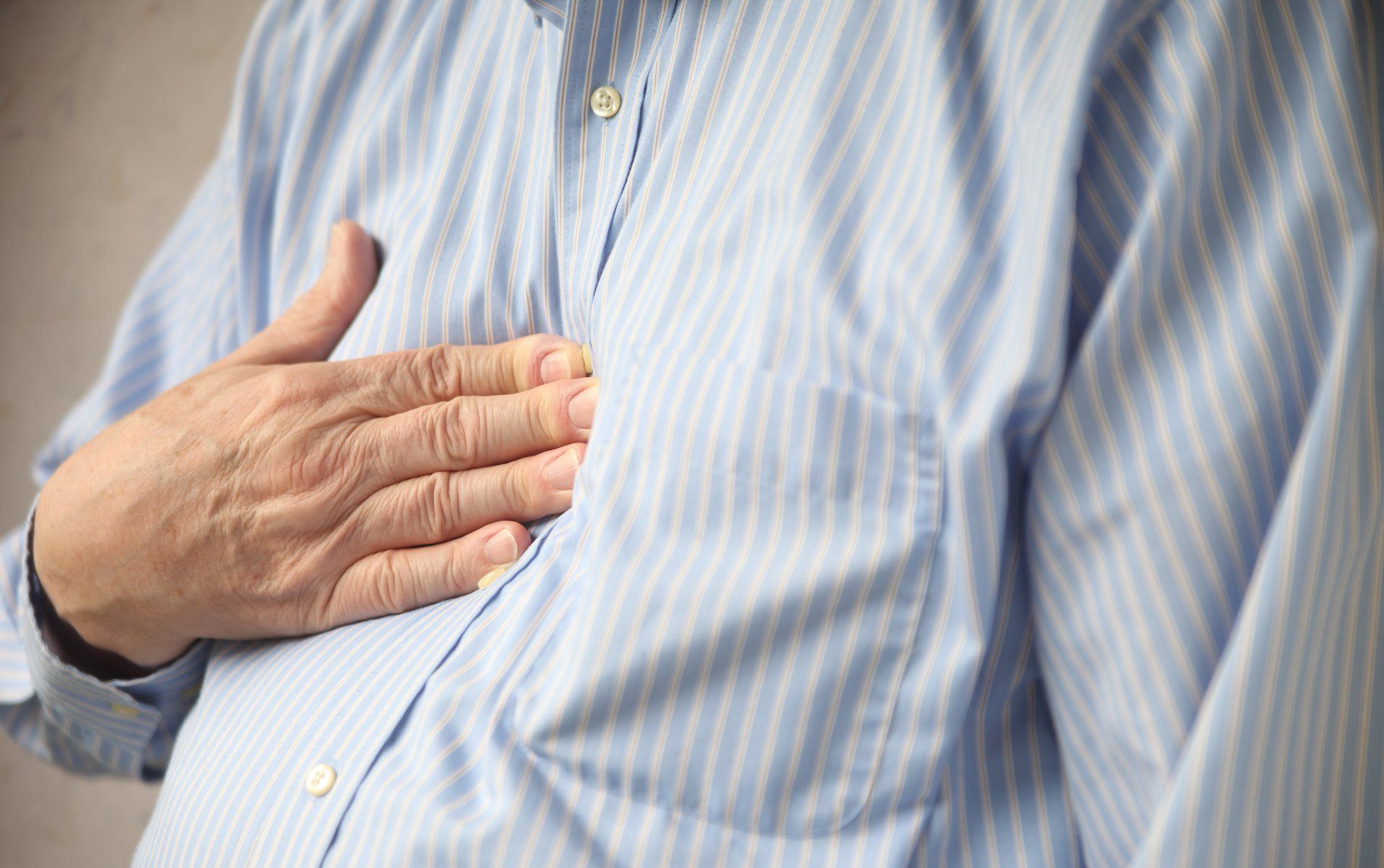REFLUX ESOPHAGITIS IN NORTHWEST FLORIDA
As a result of stomach acid flowing backward into the esophagus, reflux esophagitis, commonly known as gastroesophageal reflux disease (GERD), causes irritation and inflammation of the esophagus. There are millions of people affected by this widespread intestinal disorder globally.
HAVE QUESTIONS ABOUT REFLUX ESOPHAGITIS?
-
What are the Causes of Reflux Esophagitis?
The lower esophageal sphincter (LES), a muscular ring at the intersection of the esophagus and stomach, malfunctions and causes reflux esophagitis. This makes it possible for the stomach's acidic, such as stomach acid and partially digested food, to pass back into the esophagus.
-
What Factors Lead to the Weakening of the LES
When the stomach bulges through the diaphragm, it is known as a hiatal hernia, which impairs the LES's ability to contract. Additionally, being overweight can exert pressure on the stomach, dislodging the LES and raising the likelihood of reflux.
During pregnancy, hormone changes and increased strain on the abdomen may contribute to reflux. Reflux can also be brought on by acidic, fatty, or spicy foods, as well as by coffee, alcohol, and carbonated beverages. Smoking also affects the LES and compromises esophageal function, increasing the likelihood of reflux.
-
What are the Symptoms of Reflux Esophagitis
Heartburn, a burning sensation in the chest that frequently happens after eating or when lying down, is the most typical symptom of reflux esophagitis. Other signs can include:
- Regurgitation - Sour or bitter taste in the mouth, often accompanied by the sensation of food or liquid coming back up into the throat.
- Dysphagia - The inflammation in the esophagus can cause narrowing, making it difficult to swallow.
- Chest pain - Some people may experience chest pain that mimics heart-related issues, but it is usually a result of acid reflux.
- Chronic cough - Frequent coughing, particularly at night, may be a symptom of reflux irritating the throat.
- Hoarseness or voice changes - Acidic contents reaching the throat can affect the vocal cords, leading to hoarseness or voice changes.
-
Diagnosis of Reflux Esophagitis
If you suspect reflux esophagitis, it is important to consult a healthcare professional for a proper diagnosis. The doctor may perform the following:
Medical history and physical examination: The doctor will inquire about your symptoms and medical history, and conduct a physical examination to assess any signs of reflux.
Upper endoscopy: A flexible tube with a camera (endoscope) is inserted through the mouth to visualize the esophagus and check for inflammation or damage.
Esophageal pH monitoring: A small device is placed in the esophagus to measure acid levels over a 24-hour period, helping to determine the frequency and duration of acid reflux episodes.
-
What is the Treatment of Reflux Esophagitis?
Treatment for reflux esophagitis aims to alleviate symptoms, promote healing, and prevent complications. Medications like antacids, PPIs, and H2 receptor blockers can be beneficial. Over-the-counter antacids provide temporary relief by neutralizing stomach acid. Proton pump inhibitors are prescription medications that reduce stomach acid production, promoting healing of the esophagus. H2 receptor blockers reduce acid production, offering relief for milder cases.
If medication is not productive, or for severe reflux esophagitis conditions surgery may be necessary. Surgery would be considered if it can strengthen the LES or repair a hiatal hernia.
-
How can you Prevent Reflux Esophagitis?
Maintaining a healthy weight can help to reduce the likelihood of getting reflux esophagitis or to stop its recurrence. Reflux can be exacerbated by being overweight, therefore keeping a healthy weight is crucial. This illness can also be avoided by figuring out the foods and drinks that make your symptoms worse and avoiding them. Another way to avoid excessive stomach distension is by eating smaller meals throughout the day. Quitting smoking is very advantageous since smoking weakens the LES and harms the esophagus. The head of the bed should be raised by 6 to 8 inches to assist avoid acid reflux while you sleep.
If reflux esophagitis is not treated, it can drastically lower a person's quality of life. If your symptoms are chronic or getting worse, it's crucial to see a doctor. Most patients with reflux esophagitis can successfully manage their illness and find relief from the accompanying symptoms with the correct care and lifestyle changes. The expert staff of nurses and doctors at Digestive Diseases Center in northwest Florida are here to help with gastroenterological health.
READY TO SCHEDULE AN APPOINTMENT?
REFLUX BLOG

CONTACT
850-763-5409
ADDRESSES
4 LOCATIONS
204 E 19th Street, B, Panama City
12216 Panama City Beach Pkwy, D, Panama City Beach
4295 3rd Ave, Marianna
101 Good Morning St., 109B, Port St. Joe
Subscribe to our newsletter:
subscribe to our newsletter
We will get back to you as soon as possible.
Please try again later.

